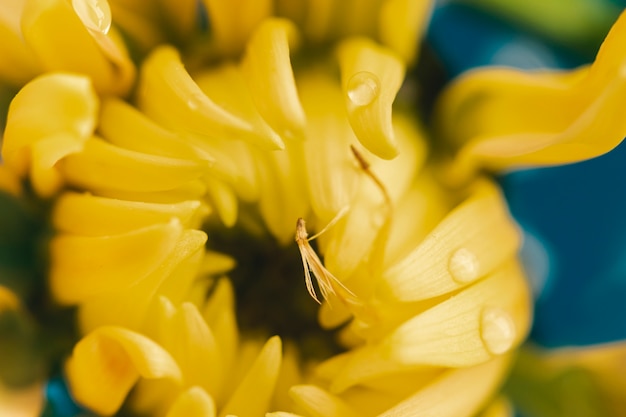
We all know that bee products like honey, royal jelly, and bee propolis offer numerous health benefits. They have a permanent place in my kitchen and home remedy supplies. So, it’s no surprise that bee pollen is also an exceptional health food and supplement.
Bee pollen is different from regular pollen. Regular pollen is the male seed of flowers necessary for plant reproduction. In contrast, bee pollen is a mix of pollen, nectar, enzymes, honey, wax, and bee secretions crafted by worker bees, which serves as the primary food for young bees.
It’s one of the most nourishing foods, providing nearly all the nutrients essential for human health. According to Dr. Mercola, bee pollen can’t be recreated in a lab. Bees cannot survive on synthetic versions, suggesting there are unknown elements in bee pollen beyond our current technology’s capacity to identify.
Though it might seem like a trendy health food, bee pollen has been used medicinally for 2,500 years, dating back to ancient Greece and traditional Chinese medicine. It even appears in Egyptian and Native American folklore.
As a complete food with all necessary nutrients, bee pollen is often used as a dietary supplement to help with allergy symptoms, nutrient deficiencies, reducing inflammation, and even aiding weight loss. While research on its weight loss effects is sparse, studies support its use in addressing malnutrition. A 2014 study on rats showed that bee pollen could prevent and reverse malnutrition and even boost muscle mass, proving its value in combating nutrient deficiencies prevalent due to poor diets.
Bee pollen also offers a variety of other benefits. Inflammation is a factor in many diseases, and boosting antioxidants can help reduce inflammation and disease symptoms. Bee pollen works as an antioxidant to combat inflammation and enhance health, with studies showing its effectiveness similar to vitamin E. It has shown promise in helping with diseases like heart issues, diabetes, and cancer.
Research also found that when mixed with honey, bee pollen significantly reduced liver inflammation in mice caused by acetaminophen. Honey alone didn’t achieve the same results, highlighting bee pollen’s unique anti-inflammatory properties. Additionally, inflammation can cause pain, so bee pollen may be effective for pain relief. A 2015 study indicated that bee pollen aids in pain reduction and the healing of burn wounds.
Not only is honey known for its antimicrobial and antibacterial properties, but bee pollen is also antimicrobial. When scientists evaluated six commercial bee pollen products, all exhibited antimicrobial qualities. This study also found bee pollen to have anti-mutagenic, antioxidant, and anti-inflammatory capabilities.
One compelling aspect of bee pollen is its potential connection to cancer. A 1948 study involving mice bred to develop tumors found those given bee pollen did not develop tumors within the expected timeframe, with some remaining tumor-free.
Further research is necessary to explore bee pollen’s anti-cancer potential. However, some studies suggest that various bee products might have anti-cancer properties but require more investigation.
Bee pollen can also help with allergies, similar to raw honey, by exposing the immune system to local pollen. A 2008 study concluded that bee pollen can inhibit mast cells, which play a role in allergic reactions.
Another surprising benefit of bee pollen is its positive effect on hormonal health. A study in rats revealed it helps regulate ovarian function and boost hormone production, such as progesterone. Research published in the journal Andrologia found that chrysin, an antioxidant in bee pollen, positively influenced male fertility.
Additionally, a 2015 study showed that bee pollen could alleviate menopausal symptoms. Women with breast cancer on anti-hormonal medication experienced symptom relief after taking bee pollen or honey.
Given its rich nutrient profile, bee pollen is an excellent choice for tackling nutrient deficiencies when used as a supplement under professional guidance. There isn’t a specific dosage for bee pollen, but starting with 1-2 teaspoons is recommended. You can enjoy it raw or mixed into food or hot water.
Bee pollen’s antimicrobial nature also makes it suitable for topical use in wound healing, helping prevent infection. Use it on your skin just like other healing salves.
Generally, bee pollen is safe for most people with no side effects when consumed briefly. However, pregnant or breastfeeding women should avoid it as it may stimulate the uterus. People with allergies to pollen should also refrain from using bee pollen. If you have concerns, consult your healthcare provider.
When purchasing bee pollen, ensure it’s sustainably harvested. Look for a local beekeeper who can explain or demonstrate their harvesting process, as sustainable practices are crucial for bee health. If local options aren’t available, a sustainably sourced brand like Beekeeper’s Naturals is accessible online.
This content has been reviewed by Dr. Jolene Brighten, a women’s health naturopathic doctor. Remember, this isn’t personal medical advice, so consult with your doctor for any health concerns.
Have you tried bee pollen? How was your experience?

